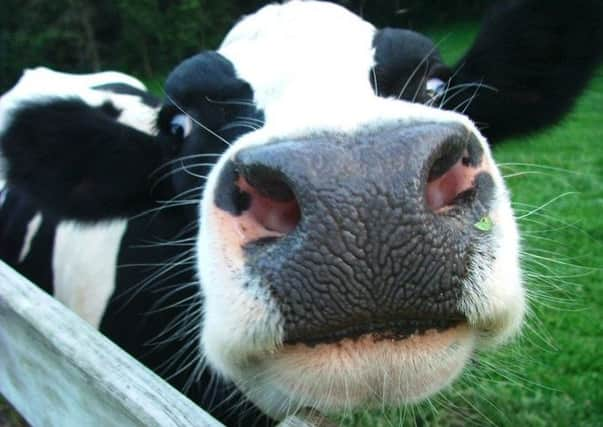Dairy farmers form producers association to ensure new raw milk controls are fair


The Raw Milk Producers Association (RMPA) has been established this week to ensure farmers’ voices are heard by the Government’s Food Standards Agency (FSA) as it plans to tighten controls around the sale of raw milk.
Typically sold via on-farm vending machines or pre-bottled, the diversification is a lifeline for smaller family-run dairy farms that could otherwise have gone bust because of low market returns that often fail to cover production costs.
Advertisement
Hide AdAdvertisement
Hide AdThe new organisation, made up of raw milk producers from across the country, including two in Yorkshire, is keen both to promote high production standards of raw milk among farmers and to work with the FSA to ensure any new controls on their product are “proportionate and supportive”.
It will also offer networking and training to producers with many currently geographically isolated from one another and will run an online forum for producers to share expertise.
Sales of raw milk in England and Wales are worth at least £3.2m a year and since 2012, sales have risen from 610,000 litres to 3.5 million litres last year.
In 2014, there were around 100 raw milk producers. As of last month, there were 171 registered producers.
Advertisement
Hide AdAdvertisement
Hide AdExisting rules dictate that producers register with the FSA, but there is little official guidance on production standards, hygiene or microbiological testing.
Farmers carry out their own milk sample testing but do not need to report any negative test results, though farms are routinely inspected by government agencies.
Speaking to The Yorkshire Post, Christine Page, secretary of the RMPA, said: “Anyone who has watched FSA board meetings over the last 18 months knows they are increasingly concerned about food-borne illnesses and the controls that are put in place could make it difficult for producers. There has even been talk of banning the sale of raw milk.
“What we are doing is starting a conversation with the FSA about how we can work together to make sure consumers who are looking for a connection with where food comes from can buy a safe product.”
Advertisement
Hide AdAdvertisement
Hide AdThe RMPA has created an online map of its raw milk producing members.
Ms Page, who sells raw milk in bottles from her herd of seven cows in south Shropshire alongside a Hereford beef enterprise, said: “Choosing a dairy farm from there tells consumers that farm has proactively taken steps to join an organisation specifically because they want to produce safe raw milk.”
She believes that sales of raw milk have spiked as increasingly discerning consumers have sought more food products direct from farms, a trend which is of great value to dairy farmers.
Ms Page added: “For some dairy farmers selling raw milk can be the difference between breaking even or losing money. It can be a lifeline to some dairy farms and has kept some afloat that would have gone under.”
Some scientists studies have linked raw milk consumption with lower risks of getting asthma and eczema, but there is no conclusive proof.